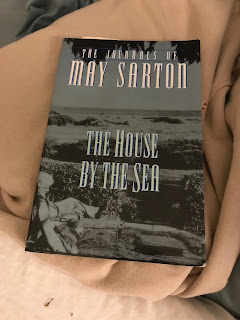 |
| photo by Amy Brandon |
"Sometimes it seemed to me that my daughter had a need to fly into a rage."
Fredrik Welin in Henning Mankell's After the Fire
All my life I've been drawn to solitude. Spare, barren, windswept, lonely snowscapes wrap me in truth and take my mind to a place I've never been able to find any other way. Anything hinting at unrelenting cold and solitude enchant me. My mental safe place has always been a windowed berth on a train speeding through a snow-covered landscape. Last year, when I stumbled on Out Stealing Horses by Per Petterson and Italian Shoes by Henning Mankell, I felt like I had died and gone to the heaven I don't believe in.
When I recognized the similarities between the two books, I decided to re-read them both, making notes as I went. I did re-read Italian Shoes and loved it as much the second time around as the first. Before I got around to re-reading Out Stealing Horses, I stumbled across After the Fire by Henning Mankell, which is a sequel to Italian Shoes. I was wandering around my new local LOCAL bookshop (Bookmarks in Winston-Salem) when I found After the Fire. What a great bookshop! The book though...well...
I was so happy to find a book that was the unknown sequel to a book I had loved. But here is what happened: I find myself, involuntarily, to be reading through the cultural lens of my time, and I am so tired of being constantly confronted with men's icky sex obsessions. I mean, honestly, at this point, what I would (or maybe wouldn't) like to know is are all men dysfunctional sex addicts? A lot of books would lend evidence to the answer to that being yes. In that case, I'd like to go on not knowing for sure, thanks anyway.
There are so many good things about this book, so many beautiful ideas, beautiful words, made even more beautiful by the retrospective knowledge that Henning Mankell was writing this book in the last years of his life. But damn, man...men...stop with the icky sex ideation. Just stop. Seriously.
I can't even go on from here. I'd like to. I have so many passages marked that I'd like to share and consider. I'd like to discuss the book and its merits, but all I can say is that the constant 70 year old dude wanting to bang the 30 year old chick fantasy completely overshadowed everything else for me right now, which is just sad and a real waste. So I'm done with this, and again I think maybe I may have to read only women authors until I get this "Oh Look Who's A Sexual Predator Now" taste out of my mouth.




